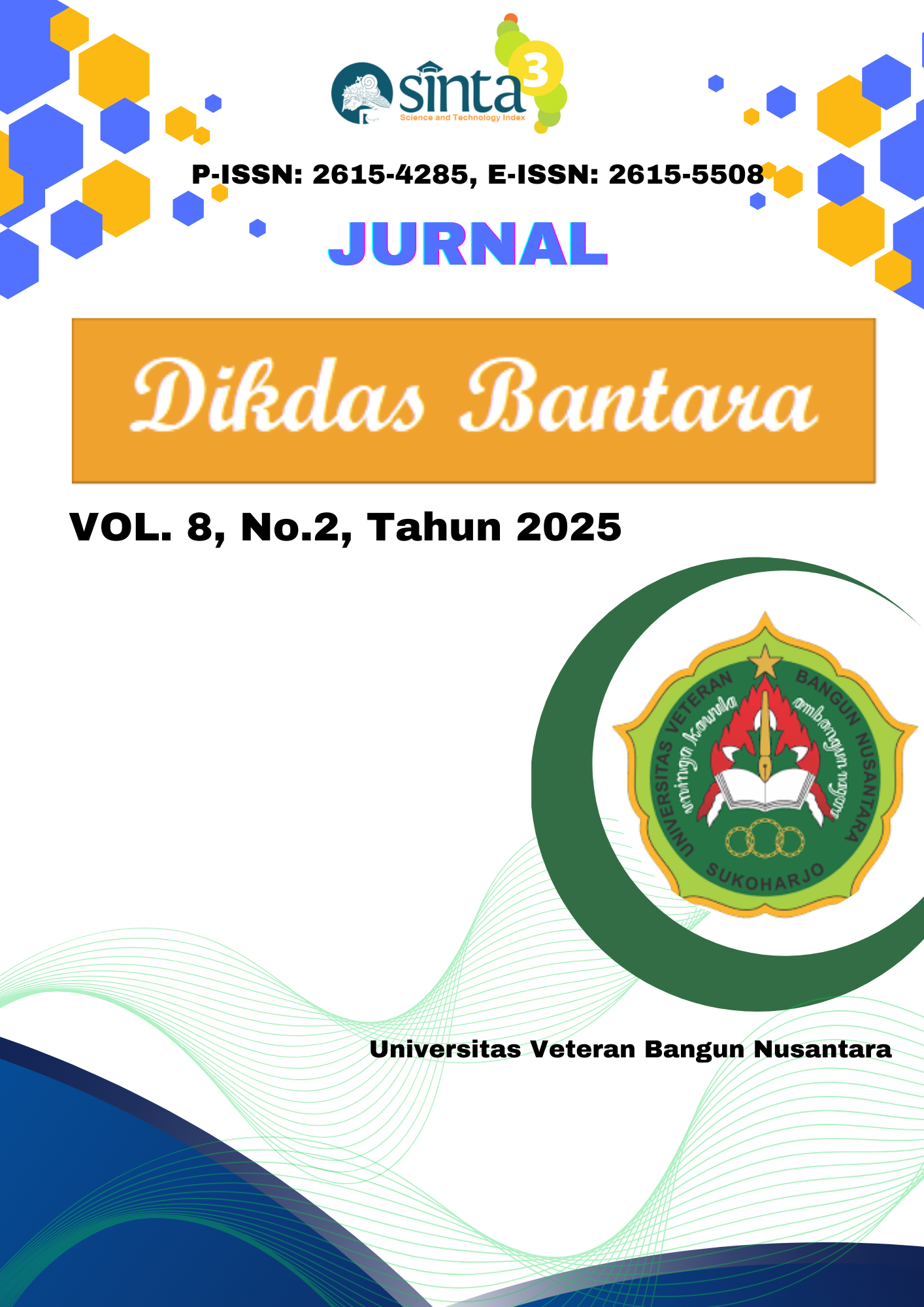THE EFFECT OF USING PHET APPLICATIONS ON IMPROVING LEARNING OUTCOMES OF GRADE IV STUDENTS IN SCIENCE LEARNING
DOI:
https://doi.org/10.32585/dikdasbantara.v8i2.6934Abstract
Education in Indonesia, especially at the elementary school level, plays a very important role in forming the foundation of knowledge and skills that students will use throughout their lives. Therefore, it is important to develop innovative learning methods to improve student understanding. This study aims to examine the effect of using the PhET application on improving the learning outcomes of fourth-grade students of SDN 14 Banda Aceh in science learning. The method used in this study was an experiment with a pretest-posttest control group design. The results showed that the PhET application can significantly improve student learning outcomes. The experimental group showed a greater increase than the control group. The average posttest score of students in the experimental group increased significantly, this shows that the PhET application in science learning in elementary schools can help students understand difficult science concepts so that it can improve student learning outcomes. Based on the results of the study, it can be concluded that through the PhET application, student learning outcomes can be improved by 92% in science learning for fourth-grade students of SDN 14 Banda Aceh. The use of technology in science learning can have a positive impact on increasing student involvement and student understanding of the material being taught
Downloads
Downloads
Published
Issue
Section
License
Copyright (c) 2025 Mughni Alya, Siti Mayang Sari, Zahraini

This work is licensed under a Creative Commons Attribution-ShareAlike 4.0 International License.
The copyright to this article is transferred to Jurnal Dikdas Bantara if and when the article is accepted for publication under Creative Commons Attribution-ShareAlike 4.0 International License. The undersigned hereby transfers any and all rights in and to the paper including without limitation all copyrights to Jurnal Dikdas Bantara. The undersigned hereby represents and warrants that the paper is original and that he/she is the author of the paper, except for material that is clearly identified as to its original source, with permission notices from the copyright owners where required. The undersigned represents that he/she has the power and authority to make and execute this assignment.We declare that:
1. This paper has not been published in the same form elsewhere.
2. It will not be submitted anywhere else for publication prior to acceptance/rejection by this Journal.
3. A copyright permission is obtained for materials published elsewhere and which require this permission for reproduction.
Furthermore, I/We hereby transfer the unlimited rights of publication of the above-mentioned paper in whole to Jurnal Dikdas Bantara. The copyright transfer covers the right to reproduce and distribute the article, including reprints, translations, photographic reproductions, microform, electronic form (offline, online), or any other reproductions of similar nature. The corresponding author signs for and accepts responsibility for releasing this material on behalf of any and all co-authors. After submission of this agreement signed by the corresponding author, changes of authorship or in the order of the authors listed will not be accepted.
Retained Rights/Terms and Conditions
1. Authors retain all proprietary rights in any process, procedure, or article of manufacture described in the work.
2. Authors may reproduce or authorize others to reproduce the work or derivative works for the author’s personal use or for company use, provided that the source and the Jurnal Dikdas Bantara copyright notice are indicated, the copies are not used in any way that implies Jurnal Dikdas Bantara endorsement of a product or service of any employer, and the copies themselves are not offered for sale.
3. Although authors are permitted to re-use all or portions of the work in other works, this does not include granting third-party requests for reprinting, republishing, or other types of re-use.



















